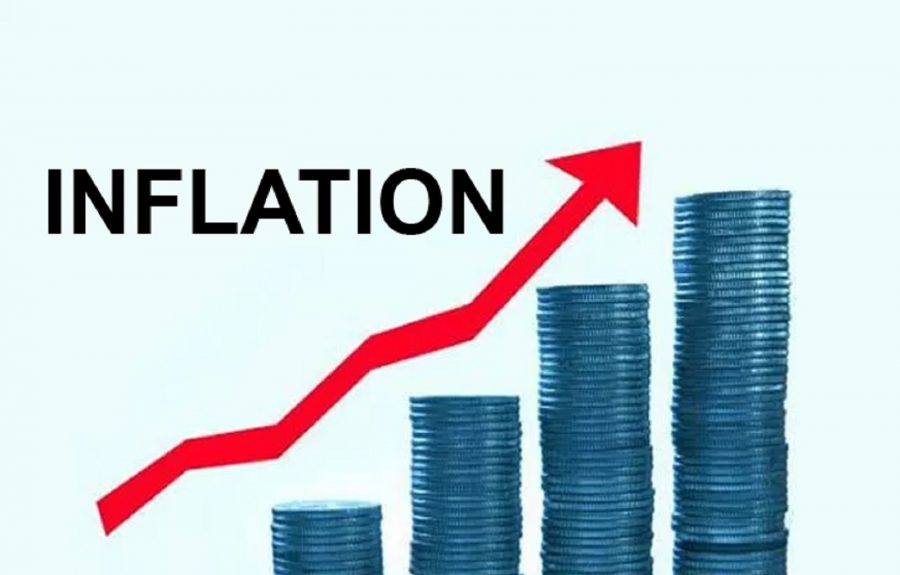

The National Bureau of Statistics (NBS) says Nigeria’s headline inflation rate increased to 28.92 per cent in December 2023.
The NBS disclosed this in its Consumer Price Index (CPI) and Inflation Report for December, which was released on Monday, January 15, 2024.
According to the report, the figure is 0.72 per cent points higher compared to the 28.20 per cent recorded in November 2023.
The NBS said on a year-on-year basis, the headline inflation rate in December was 7.58 per cent higher than the rate recorded in November 2022 at 21.34 per cent.
It said the increase in the headline index for December 2023 on a year-on-year basis and month-on-month basis was attributed to the increase in some items in the basket of goods and services at the divisional level.
The NBS said these increases were observed in food and non-alcoholic beverages, housing, water, electricity, gas, and other fuel, clothing and footwear, and transport.
Others were furnishings, household equipment and maintenance, education, health, miscellaneous goods and services, restaurants and hotels, alcoholic beverage, tobacco and kola, recreation and culture, and communication.
The NBS noted that on a month-on-month basis, the headline inflation rate in December 2023 was 2.29 per cent, which was 0.20 per cent higher than the rate recorded in November 2023 at 2.09 per cent.
READ ALSO: Breaking: Nigeria’s inflation rate hits 28.2%
”This means that in December 2023, the rate of increase in the average price level is more than the rate of increase in the average price level in November 2023,” the NBS added.
It said the percentage change in the average CPI for the 12 months ending December 2023 over the average of the CPI for the previous corresponding 12-month period was 24.66 per cent.
“This indicates a 5.81 per cent increase compared to 18.85 per cent recorded in December 2022,” it stated.
The NBS said the food inflation rate in December increased to 33.93 per cent on a year-on-year basis, which was 10.18 per cent higher compared to the rate recorded in December 2022 at 23.75 per cent.
“The rise in food inflation on a year-on-year basis is caused by increases in prices of bread and cereals, oil and fat, potatoes, yam and other tubers, fish, meat, fruit, milk, cheese, and egg,” it noted.
It said on a month-on-month basis, the food inflation rate in December was 2.72 per cent, which was a 0.30 per cent increase compared to the rate recorded in November 2023 at 2.42 per cent.
“The rise in food inflation on a month-on-month basis was caused by an increase in the average prices of oil and fat, meat, bread and cereals, potatoes, yam and other tubers, fish and milk, cheese, and egg,” the NBS disclosed.
The NBS stated that “all items less farm produce and energy’’ or core inflation, which excludes the prices of volatile agricultural produce and energy, stood at 23.06 per cent in December on a year-on-year basis.
It said: “This increased by 4.85 per cent compared to 18.21 per cent recorded in December 2022.
“The exclusion of the PMS is due to the deregulation of the commodity by removal of subsidy.”
It said the highest increases were recorded in prices of passenger transport by road, medical services, actual and imputed rentals for housing, passenger transport by air, pharmaceutical products, accommodation service, etc.
The NBS said on a month-on-month basis, the core inflation rate was 1.82 per cent in December 2023, adding that this indicated a 0.29 per cent rise compared to what was recorded in November 2023 at 1.53 per cent.
“The average 12-month annual inflation rate was 20.76 per cent for the 12 months ending December 2023, this was 4.74 per cent points higher than the 16.02 per cent recorded in December 2022,” it said.
The NBS noted that on a year-on-year basis in December, the urban inflation rate was 31.00 per cent, which was 8.98 per cent higher compared to the 22.01 per cent recorded in December 2022.
“On a month-on-month basis, the urban inflation rate was 2.42 per cent in December representing a 0.19 per cent increase compared to November 2023 at 2.23 per cent,” it said.
The NBS said on a year-on-year basis in December, the rural inflation rate was 27.10 per cent, which was 6.38 per cent higher compared to the 20.72 per cent recorded in December 2022.
It added that on a year-on-year basis, food inflation was highest in Kogi State at 44.73 per cent, followed by Kwara State at 41.33 per cent, and Imo State at 39.54 per cent.
“Bauchi at 27.49 per cent, followed by Jigawa at 27.98 per cent and Sokoto at 28.72 per cent recorded the slowest rise in food inflation on a year-on-year basis,” it said.
The NBS, however, said on a month-on-month basis, food inflation was highest in Bayelsa at 4.42 per cent, followed by Ogun at 4.11 per cent, and Enugu at 4.03 per cent.
“While Nasarawa at 1.48 per cent, followed by Delta at 1.65 per cent and Niger at 1.67 per cent, recorded the slowest rise in inflation on a month-on-month basis,” it stated.
Justice F. N. Ogazi of the Federal High Court sitting in Ikoyi, Lagos, on Tuesday,…
The leaders of the defunct Congress for Progressive Change (CPC) have declared their support for…
President Bola Tinubu on Wednesday April 16, 2025 inaugurated a high-level committee on the forthcoming…
Deputy Governor of Kaduna State, Dr Hadiza Balarabe, has pointed out that employers are now…
Dangote refinery has reduced the ex-depot price of Premium Motor Spirit (PMS), fondly called petrol,…
Kaduna State Governor Uba Sani says the state can be a model for effective donor-funded…
This website uses cookies.